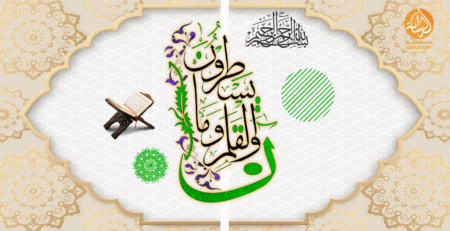Islamic Religion and Its Influence on Society
Introduction
Islam, the world’s second-largest religion, has a profound impact on society and its followers. Understanding its core tenets and how they shape the worldview of its adherents is essential in comprehending its influence on various aspects of life.
Understanding Islam
Core Beliefs
Islam is centered around the belief in one God, Allah, and the acceptance of Muhammad as His final messenger. Monotheism is a fundamental aspect, emphasizing the oneness and omnipotence of Allah.
Five Pillars of Islam
The Five Pillars serve as the foundation of Islamic practice, including Shahada (declaration of faith), Salah (prayer), Zakat (charity), Sawm (fasting during Ramadan), and Hajj (pilgrimage to Mecca).
Holy Texts
The Quran, believed to be the verbatim word of God, is the primary source of guidance for Muslims. Additionally, the Hadith collections contain the sayings and actions of Prophet Muhammad, providing further insight into Islamic teachings.
Influence on Society
Social Structure
Islamic principles influence social interactions, emphasizing values such as compassion, justice, and community. Concepts like Zakat foster a sense of responsibility towards the less fortunate, promoting social cohesion.
Education
Education holds significant importance in Islam, with an emphasis on seeking knowledge as a religious duty. Islamic institutions and scholars have historically played a pivotal role in advancing various fields, including science, mathematics, and philosophy.
Politics
The relationship between Islam and politics is complex, varying across different societies and historical contexts. While some advocate for Islamic governance based on Sharia law, others seek a separation of religion and state.
Economy
Islamic finance principles prohibit activities deemed unethical or exploitative, such as interest (riba) and excessive speculation (gharar). Concepts like Zakat and Islamic banking promote economic stability and equitable distribution of wealth.
Islamic Worldview
Faith and Practices
Islamic faith permeates every aspect of life, shaping daily rituals, interactions, and decision-making processes. Prayer, charity, and adherence to Islamic law (Sharia) are integral components of the worldview.
Morality and Ethics
Islamic ethics revolve around principles of honesty, integrity, and accountability. Concepts like Halal (permissible) and Haram (forbidden) guide ethical behavior, influencing personal conduct and societal norms.
Role of Women
The role of women in Islam has been subject to interpretation and debate, with varying practices across different cultural contexts. While some argue for gender equality within Islamic teachings, others advocate for traditional gender roles.
Impact on Followers
Psychological Influence
Islam provides a sense of purpose, belonging, and spiritual fulfillment for its followers, offering comfort in times of adversity and guidance in navigating life’s challenges.
Cultural Identity
Islamic identity encompasses cultural practices, traditions, and customs shaped by religious beliefs and values. It fosters a sense of belonging and solidarity among Muslims worldwide.
Interfaith Relations
Islam promotes tolerance, coexistence, and dialogue with people of other faiths, emphasizing the importance of mutual respect and understanding. Interfaith initiatives seek to foster peace and cooperation among diverse communities.
Conclusion
Islamic religion profoundly influences society, shaping social norms, moral values, and individual behavior. Understanding its core principles and their impact is essential in fostering intercultural understanding and promoting harmony in an increasingly diverse world.
FAQs
- Does Islam promote violence? Islam condemns violence and promotes peace, but interpretations vary among individuals and groups.
- What are the main differences between Sunni and Shia Islam? The primary difference lies in the succession of leadership after Prophet Muhammad’s death, leading to divergent theological and jurisprudential interpretations.
- How does Islam view non-Muslims? Islam encourages respect and kindness towards people of all faiths, promoting peaceful coexistence and dialogue.
- Is hijab mandatory for Muslim women? Hijab is a religious obligation for Muslim women, although interpretations vary regarding its specific requirements and cultural practices.
- What is the significance of Mecca in Islam? Mecca holds immense religious significance as the birthplace of Prophet Muhammad and the site of the Kaaba, the holiest shrine in Islam.











Leave a Reply